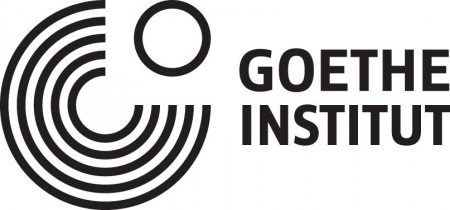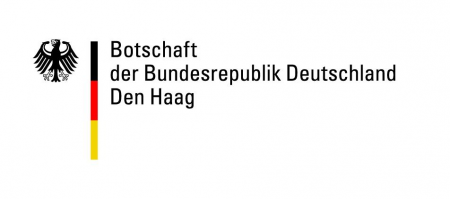BAK basis voor actuele kunst invites you to the exhibition Christoph Schlingensief: Fear at the Core of Things, 4 February – 29 April 2012, Utrecht, Netherlands
Christoph Schlingensief (1960–2010) was one of the most seminal if controversial theatre, film, and contemporary art figures of his generation. This project attests to his striving towards “Lebenskunstwerk”—a work of life-art. Ever confronting the uncomfortable, he collapsed the systems of art and politics into an experimental immediacy, calling on the viewer to assume responsibility for the state of the world and to think it otherwise. Curated by Kathrin Rhomberg.
Christoph Schlingensief: Fear at the Core of Things
04.02.–29.04.2012
The exhibition will be accompanied by a film program of Christoph Schlingensief’s films (04.02.2012 – 28.03.2012) and a public talk by Matthias Lilienthal (08.30.2012).
BAK, basis voor actuele kunst
Lange Nieuwstraat 4
NL-3512 PH Utrecht
Wednesday-Saturday 12:00-17:00 hrs
Sunday 13:00-17:00 hrs
Christoph Schlingensief: Fear at the Core of Things is a research exhibition within the framework of the project FORMER WEST.
PUBLIC PROGRAM: FILMS BY CHRISTOPH SCHLINGENSIEF
In conjunction with the exhibition at BAK, Fear at the Core of Things, this program addresses the artist’s prolific career as a filmmaker. Schlingensief began to make films in the late 1960s. Later, even as his work evolved and expanded into different media, he continued to identify himself primarily as a filmmaker. The films shown in this program, provide comprehensive insight into the artist’s filmic world. They exemplify central features of his oeuvre and reveal his radical liberation of the cinematographic image.
For admission fees please contact ’t Hoogt.
Filmtheater ’t Hoogt, Hoogt 4, Utrecht
The public program is realized in collaboration with ’t Hoogt and Filmgalerie 451, Berlin.
04.02.2012, 19.30 hrs
The African Twin Towers 2009, 70 min.
This documentary follows Schlingenisef’s return to film after a decade with The African Twin Towers, set in the German colony, Luederitz, Namibia. While Twin Towers remains unfinished, the documentary of the same name provides access to the film’s 27- day shooting period and shows Schlingensief, having abandoned the script, improvise concepts as he reacclimatizes to film after 10 years in the performing and visual arts. Through excerpts from the original Twintowers and a voiceover recorded three years after filming, in which Schlingensief tries to assimilate what happened, the documentary captures a period that redefined Schlingensief’s artistic vision.
22.02.2012, 19.15 hrs
100 Jahre Adolf Hitler – Die letzte Stunde im Führerbunker [100 Years Adolf Hitler–The Last Hour in the Führerbunker] (part 1 of the “Germany Trilogy”) 1989, 55 min.
My Wife in Five, 1985, 14 min.
Shot in complete darkness over 16 hours without pause in a World War II bunker, the single light source guiding the camera through the controlled chaos in 100 Years Adolf Hitler – The Last Hour in the Führerbunker_, is Schlingensief’s flashlight. During filming, cast and crew were not permitted to leave. Laying the groundwork for Schlingensief’s later works on as well as off stage and in his TV shows (_U3000, Talk 2000), it is a key film in his artistic oeuvre that enables the viewer to witness the unfolding of an aura. It is perhaps the closest Schlingensief ever came to Direct Cinema. Also on view is the short film My Wife in 5, which is made up of three music video clips.
29.02.2012, 19.30 hrs
Terror 2000 – Intensivstation Deutschland [Terror 2000– Germany out of Control] (part 3 of the “Germany Trilogy”) 1992, 75 min.
Terror 2000 – Intensivstation Deutschland is a collection of spontaneous impressions of Germany during the Helmut Kohl (Chancellor of Germany from 1982 to 1998) era. Two unlikely detectives investigate the disappearance of a German social worker and the Polish family for whom he worked. As their pursuit develops, they are led to the East German city of Rassau. In Rassau they find the last hostage takers of Gladbeck living undercover as a priest and a cheap wholesale furniture dealer who lead the city’s xenophobic mob in killing sprees against asylum seekers.
14.03.2012, 19.30 hrs
Freakstars 3000 2003, 75 min.
Freakstars 3000 is Schlingensief’s answer to the talent show craze. Out of many applicants awaiting their shot at fame and fortune, only the seven best are left to form the band Mutter Sucht Schrauben [Mother Seeks Screws] at the end of a fierce casting competition. Headed by a merciless jury, Freakstars 3000 has the fears, tears, agony, and ecstasy to end all casting shows. Based on a six-episode TV show, the film combines highlights and unseen material from the German music television channel VIVA’s most successful TV program. In the wasteland that German TV has become, see contestants reinvent depleted TV formats, ranging from political talk shows to home shopping programs.
28.03.2012, 19.30 hrs
Für Elise 1982, 2 min.
Egomania 1986, 84 min.
Für Elise is Schlingensief’s first 16 mm film, and in the sounding of Germany’s national anthem the short film expresses Schlingensief’s profound life crisis after being rejected by the film academy in Munich. While Egomania– Island without Hope is among his deliberately ugly and offending films, it stands out as unexpectedly beautiful with its seemingly mythological series of scenes, images, and characters. The film shows an unconscious struggle between creative and destructive forces on an island in the Baltic Sea where peace and joy have been replaced by hopelessness and discord. When true love threatens the island’s state of sadness, it provokes panic in the vampiric baron who reigns over the islanders.
PUBLIC PROGRAM: LECTURE BY MATTHIAS LILIENTHAL
08.03.2012, 20.00 hrs
Ausländer raus—Bitte liebt Österreich, or Christoph Schlingensief’s Big Brother container
The title of Christoph Schlingensief’s work, Ausländer raus—Bitte liebt Österreich [Foreigners out— Please love Austria], 2000, consists of a seemingly xenophobic slogan that is followed by a humbly nationalistic phrase whose irony makes it a fierce censure of Austria. This combination is typical of Christoph Schlingensief’s approach. The trigger for the project was a government coalition that for the first time included the rightwing and nationalistic Freedom Party of Austria. Schlingensief’s fictional deportations put the party’s slogans into practice, and made him one of the sharpest critics of its policies. He fought against these policies in his own way by using art to produce an impact that would affect the whole country.
The lecture is in English, with video excerpts from the project.
Matthias Lilienthal is a dramaturge and director of the three-theater ensemble Hebbel am Ufer, Berlin. He lives and works in Berlin.
Venue for the lecture: Het Utrechts Archief, Hamburgerstraat 28, 3512 NS Utrecht
Opening 04.02.2012 16:00 hrs
Exhibition 05.02.–29.04.2012
The exhibition Christoph Schlingensief: Fear at the Core of Things has been made possible by:


